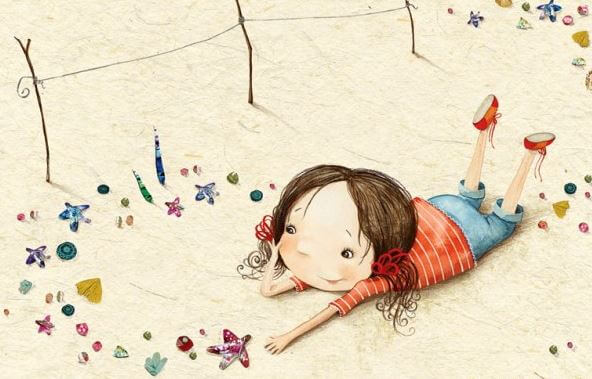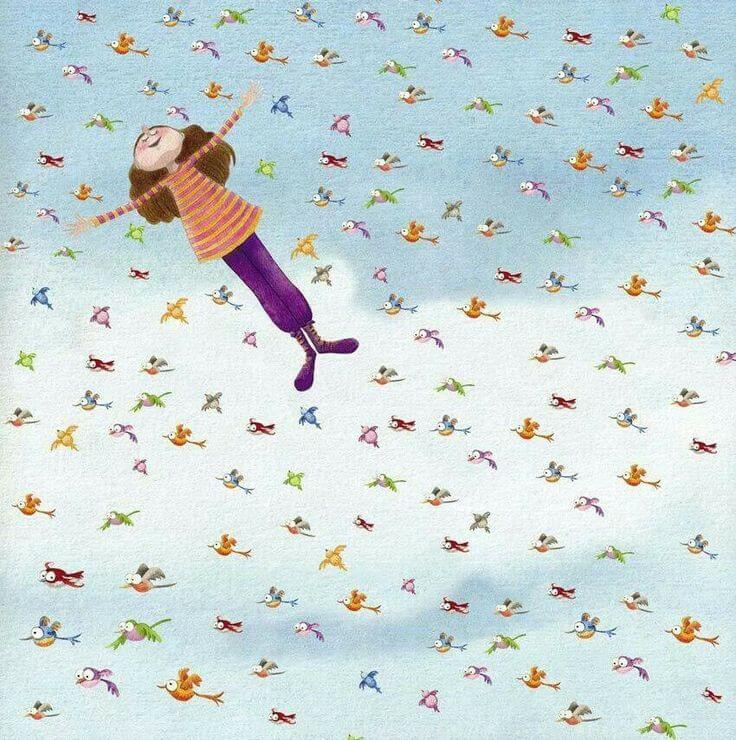Goodness Does Not Need a Manual, It Arises Spontaneously

Perhaps you’ve wondered what the manual of good people is, what they read and where they learn to have that goodness, that light that illuminates them.
In fact, good people do not know the immense good they do for those around them and may even become discouraged by their extreme sensitivity, an essential quality in the times we live in.
These people have doubts and even torment themselves thinking about whether they are doing right or wrong. Their manner is so pure and sincere. What you see is what you get. There’s no duplicity, which can often make them the target of many attacks.
“The only symbol of superiority that I know is kindness.”
– Ludwig Van Beethoven-
Some people do not need instructions on how to act in a gentle manner wherever they go. They are the true expression and meaning of goodness, which is always spontaneous and never feigned. They live it out as a natural virtue, never imposed based on dogmas and rules.
Goodness need not be read, only applied
Every child has a pure soul that adapts to their surrounding environment with more or less patience, as our temperament, biology and environment make us different. Rousseau already pointed out that “man is good by nature, it is society that corrupts him”. Perhaps he wasn’t completely wrong.
“You’ll see that the evils of men are the result of their choice and that the source of good is carried away when they carry it in their heart.”
-Pythagoras of Samos-

We see this innate goodness in very young children who enjoy optimal development. The child integrates other partners in the game, tries to heal a wounded bird and gives hugs and smiles. A restless child, but always exuding passion and joy.
When education nullifies our virtues
Today we see so much violence that it can lead us to ask what we are doing wrong in the education of our children. Why has that innate and spontaneous kindness become bitterness, frustration and violence? What spiritual and social models do we instill in them for them to arrive at a moment of development where they do not wish to establish bonds, but comparisons and competition?
How can we encourage natural goodness?
There are no detailed plans or strategies to increase goodness in a child given. However, there are always ways to encourage nobility.
- Discard the blame from any educational system. Blame is not only an unnecessary mechanism, but it is also highly toxic in humans. When we make someone feel guilty, thinking that we will punish them and they will not repeat something we think is wrong, we are encouraging that person to think that what they have done wrong represents them. We are telling them that somehow that they are bad, and next time they will act as we say.
- Stop judging. People choose their own paths and make their own decisions. As children we begin to show our own individuality and character. Instead of educating to obey, we should unconditionally accept the character of each of the children around us.

- Set limits. Civility and good manners are not repressive, but liberating. Respecting others means knowing where my rights, duties and my pleasures reside, in addition to knowing the boundaries and limits that separate each of them.
- Contact with nature and animals. Nature offers calm and the unconditional love of animals. These two virtues are the basis of all human development because in tranquility, and by listening and understanding the views of others we develop empathy.
Being a good person is sometimes as simple as stopping and asking yourself how you can begin to heal yourself and heal others. Do not force it or try to find a guide that tells you what to do at all times because, as we said, true goodness is spontaneous and never plagiarized.
5 Lessons of “The Jungle Book” For Children
“The new version of” The Jungle Book “appeals to both adults and children alike. Collect some positive messages that children should … See more»
Perhaps you’ve wondered what the manual of good people is, what they read and where they learn to have that goodness, that light that illuminates them.
In fact, good people do not know the immense good they do for those around them and may even become discouraged by their extreme sensitivity, an essential quality in the times we live in.
These people have doubts and even torment themselves thinking about whether they are doing right or wrong. Their manner is so pure and sincere. What you see is what you get. There’s no duplicity, which can often make them the target of many attacks.
“The only symbol of superiority that I know is kindness.”
– Ludwig Van Beethoven-
Some people do not need instructions on how to act in a gentle manner wherever they go. They are the true expression and meaning of goodness, which is always spontaneous and never feigned. They live it out as a natural virtue, never imposed based on dogmas and rules.
Goodness need not be read, only applied
Every child has a pure soul that adapts to their surrounding environment with more or less patience, as our temperament, biology and environment make us different. Rousseau already pointed out that “man is good by nature, it is society that corrupts him”. Perhaps he wasn’t completely wrong.
“You’ll see that the evils of men are the result of their choice and that the source of good is carried away when they carry it in their heart.”
-Pythagoras of Samos-

We see this innate goodness in very young children who enjoy optimal development. The child integrates other partners in the game, tries to heal a wounded bird and gives hugs and smiles. A restless child, but always exuding passion and joy.
When education nullifies our virtues
Today we see so much violence that it can lead us to ask what we are doing wrong in the education of our children. Why has that innate and spontaneous kindness become bitterness, frustration and violence? What spiritual and social models do we instill in them for them to arrive at a moment of development where they do not wish to establish bonds, but comparisons and competition?
How can we encourage natural goodness?
There are no detailed plans or strategies to increase goodness in a child given. However, there are always ways to encourage nobility.
- Discard the blame from any educational system. Blame is not only an unnecessary mechanism, but it is also highly toxic in humans. When we make someone feel guilty, thinking that we will punish them and they will not repeat something we think is wrong, we are encouraging that person to think that what they have done wrong represents them. We are telling them that somehow that they are bad, and next time they will act as we say.
- Stop judging. People choose their own paths and make their own decisions. As children we begin to show our own individuality and character. Instead of educating to obey, we should unconditionally accept the character of each of the children around us.

- Set limits. Civility and good manners are not repressive, but liberating. Respecting others means knowing where my rights, duties and my pleasures reside, in addition to knowing the boundaries and limits that separate each of them.
- Contact with nature and animals. Nature offers calm and the unconditional love of animals. These two virtues are the basis of all human development because in tranquility, and by listening and understanding the views of others we develop empathy.
Being a good person is sometimes as simple as stopping and asking yourself how you can begin to heal yourself and heal others. Do not force it or try to find a guide that tells you what to do at all times because, as we said, true goodness is spontaneous and never plagiarized.
5 Lessons of “The Jungle Book” For Children
“The new version of” The Jungle Book “appeals to both adults and children alike. Collect some positive messages that children should … See more»
This text is provided for informational purposes only and does not replace consultation with a professional. If in doubt, consult your specialist.







